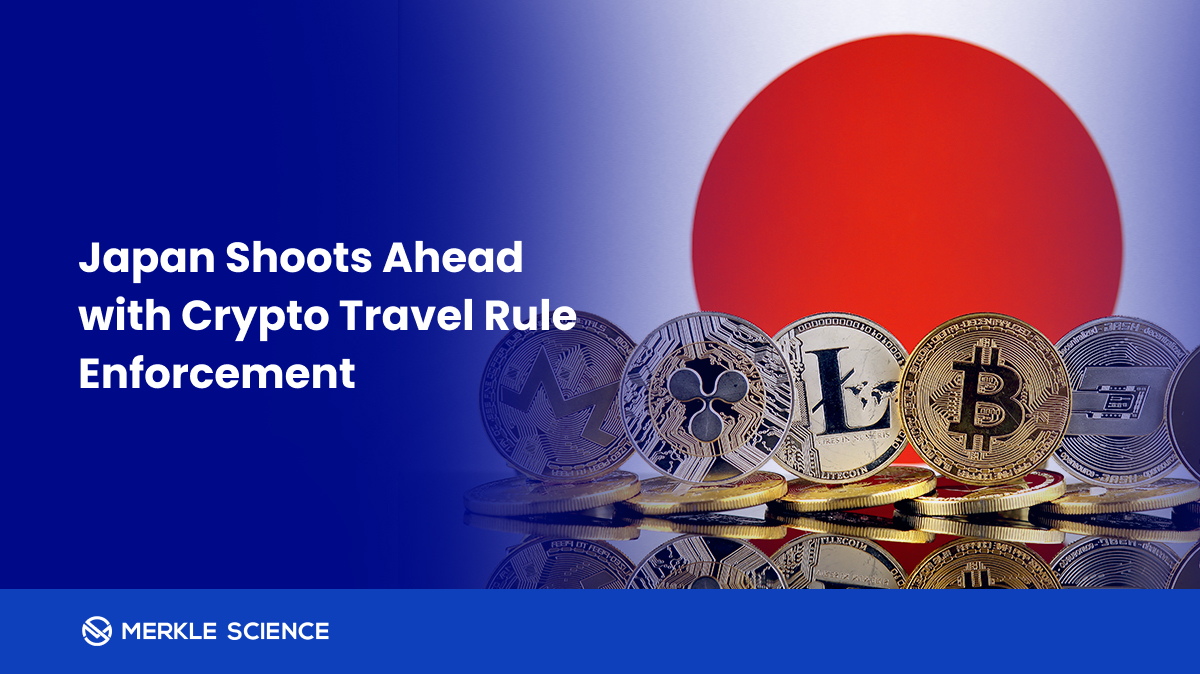Japanese Crypto Exchanges to Enforce the Travel Rule from April 1

Merkle Science

The Japan Crypto Asset Trading Association (JVCEA) announced that domestic crypto exchanges will have to start enforcing the FATF’s Travel Rule guidance from April 1, 2022. JVCA is a self-regulatory body charged with creating rules and policies applicable to crypto exchanges in Japan. It is responsible for implementing the Travel Rule regulation in Japan.
In its Mutual Evaluation Report of Japan in 2021, the Financial Action Task Force (FATF) stated that Japanese policies lacked targetted AML/CFT activities. The FATF also noted that Japanese mafia members were increasingly using cryptocurrencies to launder proceeds from crime.
Under the Travel Rule, registered or licensed crypto exchanges are required to obtain, hold, verify, and share personally identifiable information (PII) of their customers with each other. Since the Travel Rule not only leads to the implementation of stronger KYC policies and practices but also enhances the audit trail, the successful implementation of the Travel Rule will help the law enforcement agencies and financial regulators to better comprehend, detect, and prevent ML/TF activities involving crypto.
Key highlights from JVCEA’s Travel Rule Notice
From April 1, 2022, Japanese crypto exchanges will have to share the recipient’s name and address with each other. They will also be required to exchange data related to the origin of the transaction and information on whether the recipient’s wallet is hosted on a crypto exchange or not.
In case the users of the sending crypto exchange (the official FATF terminology being “originator”) meet the below-mentioned conditions, the originator will be obligated to provide certain information to the receiving crypto exchange (official FATF term being “beneficiary”).
- The recipient is the same as the user requesting the delivery
- The recipient is a crypto exchange in Japan.
- The crypto asset that is being exchanged is either Bitcoin (BTC) or Ether (ETH)
- The amount of crypto that is to be transferred is worth more than 100,000 Japanese yen.
The recipient may be the same as the user requesting the delivery, in cases, where the user sends crypto assets from his custodial wallet to his private wallet or when the user accounts on both exchanges belong to the same individual. JVCA may also request further information on those users who conduct transactions worth over $865 (10 million Japanese Yen).
From October 1, 2022, crypto exchanges will have to provide more information about the recipient. Additionally, crypto exchanges will also have to share details regarding the purpose of the transactions; however, the JVCA has stated that exact details, which need to be shared, are yet to be decided upon.
Why Merkle Science
Japanese regulators have placed an obligation on crypto exchanges to ensure strict and timely implementation of the Travel Rule, Merkle Science stands in support of the crypto exchanges as they gear up for implementation of the FATF recommendation.
With Japanese regulatory bodies looking to strengthen their crypto regulatory regime, it is essential for crypto value service providers should proactively put robust compliance frameworks in place. Merkle Science’s highly customizable and easy-to-use platform provides VASPs with 360-degree compliance support. Our predictive cryptocurrency risk and intelligence platform set the standard for the next generation of financial safeguards and criminal detection. Merkle Science's proprietary Behavioral Rule Engine allows users to tailor the tool according to VASP’s own risk policies based on the FATF standards so that businesses may stay ahead of emerging illicit activities and fulfill their local compliance obligations.


